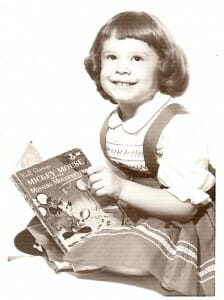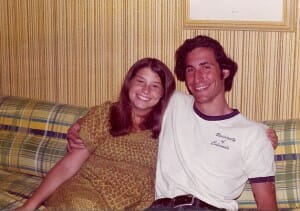
Flickr Image
By Canonimous
It has been decades since I took a roller coaster ride. Nevertheless, I can still remember standing in awe in front of the towering structure while I anticipated my turn. Waiting in line only intensified these feelings.
After being seated, I would have second thoughts. The fears from the previous ride would resurface. As I adjusted the safety bar, I would whisper, “Do I really want to do this?”
I cannot forget my trepidations as the car inched up the track or the churning of my internal organs as my body whirled down the other side. Old time wooden structures wobbled as wind compressed my body. I continued to express my doubts. I had no control over the situation. I did not like it.
Moments later, the tumultuous ride was over. I could only wonder why I had subjected myself to such an unsettling experience.
Fortunately, for my sake, my exposure to amusement park rides was limited. My physical wellbeing was kept in check. Even though I rarely went on roller coasters, I was not immune to similar sensations when my feet were planted firmly on the ground.
As a child, I had a parent-child relationship that in many respects resembled a vintage wooden roller coaster ride. My days were filled with a mixture of apprehension, disappointment, and relief. My childhood was an emotional roller coaster.

Preschooler
When I was very small, I looked upon my mother and father with awe. They were larger than life and could do no wrong. Whatever they did I assumed was the norm.
Even though my mother did not work outside the home, I rarely spent time with her. A revolving door of faceless women filled the gap. It seemed like I stood in line for years waiting for my mother’s love. Unlike the roller coaster, I never reached the end. Decades later, I’m still waiting.
When I look back to my early childhood, I can remember only tiny snippets. Each small memory is rekindled when I look at still photos and 16-millimeter family films. My father was usually the one taking the pictures.
Once I started school, the roller coaster ride began. The upward climb was met with uncertainty. My parents rarely extended a helpful hand or stood nearby for reassurance. I was expected to fend for myself.
I lived in a generation long before helicopter parents came on the scene. My parents were more like subway cars that were not visible unless you went looking for them.
Each year, my relationship with my parents had peaks and valleys. I struggled trying to understand their erratic and unpredictable behavior. My natural response was to become more reserved. In school, I was the student who rarely raised their hand even though I usually knew the correct answer.
My mother had a knack for selecting things that made me stand out from my peers. My clothing was usually a bit off and some of my glasses were not correctly apportioned to my face. My classmates teased me. I can still recall the unusual gifts that my mother bought for my friends. I cringed when I had to pass them out.
My baby in the family status was relinquished when I was nine years old. Whatever attention shines on the youngest was passed to my baby brother. Now my parents had to distribute their limited affection to 5 children. The rollercoaster ride swayed one way and then another as it continued along the track.
The straight tracks were the summers I escaped to the North Woods. Summer camp was eight weeks of organized routines. A predictable life made me more balanced. Constant activity made me thinner.
My family’s dynamics were compounded by a series of medical issues. My father drifted from one hospital stay to the next. I spent hours observing his pain and watching him sleep. He would eventually recover, but a new malady would appear.
Sex was a taboo topic. “Good” girls didn’t “do it.” However “it” was never discussed. The maids answered some of my questions and provided tampons when I needed them. My mother had no clue when I had my first period.

High School Years
By the time I was a teenager, my mother would go away for weeks at a time and leave us behind. She could not face her responsibilities or my father’s health issues. In my teens, I became a surrogate parent for my youngest brother during my mother’s absences.
Housekeepers continued to come and go while my mother drifted. Meanwhile life went on and I continued to mature. I almost always fell short of my mother’s expectation. I was always “too much” or “too little” of a particular benchmark. My father became a buffer. He could temporarily stop my mother’s tirades.

Graduation Picture
I couldn’t wait to head west to college. My hands-off parents delegated the college selection process and the onsite visits to my sister. She offered the following words of advice–“Escape as soon as you can and open a savings account.” Following her advice, I started school in the summer instead of the fall. One of my older brothers drove me to Colorado. He dropped me off at the dorm and then left. I returned to Colorado in the fall by myself. My mother and father visited one weekend to celebrate my birthday.
My parents suddenly became an early version of a drone. Once a week, they hovered in. The mandatory call was always on a Sunday morning. I had to be available at the designated time. They never asked any significant questions other than why I was spending money.
I met the love of my life within months of moving to Colorado. I was just short of my eighteenth birthday. For years, my mother had told me that I should go to college for my MRS instead of a BA. I shook my head in disbelief. This was the 1970s not the 1940s. She had her wish sooner than anticipated. However, to no one’s surprise, my choice did not meet her expectations.
One battle after another caused a large and irrevocable schism. Before I knew it, the rollercoaster had jumped the track. I was buried in a pile of debris. My parent-child relationship was in shambles. I was entering the next stage of my life as Mrs. Bornstein.
This posting is responding to the NaBloPoMo prompt- Describe your relationship with your parents. How has it changed over the years?
Related Blogs:
Keeping a Balanced Perspective
A New Goal-Daily Blogs in February
Confronting an Irrational Fear
Coping With the Uncertainties of Life
Bio
Sandra Bornstein is the author of MAY THIS BE THE BEST YEAR OF YOUR LIFE. It is available on Amazon.
Sandra’s memoir highlights her living and teaching adventure in Bangalore, India. She is a licensed Colorado teacher who has taught K-12 students in the United States and abroad as well as college level courses. Sandra is married and has four adult sons.
The memoir was a finalist in the Travel category for the 2013 Next Generation Indie Book Awards, the 2013 International Book Awards, the 2013 National Indie Book Excellence Awards, 2013 USA Best Book Awards, and a Honorable Mention award in the Multicultural Non-Fiction category for the 2013 Global ebook Awards.

Leave a Reply
You must be logged in to post a comment.